The Global Foundation for Democracy and Development (GFDD) and its sister organization in the Dominican Republic, Fundación Global Democracia y Desarrollo (FUNGLODE), commenced their IV annual Dominican Republic Environmental Film Festival (DREFF), a five-day event held from September 10 to 14, 2014. More than 80 screenings in 10 auditoriums and venues across the Dominican Republic will showcase 37 films including Dominican films, feature and short films as well as GFDD productions related to environmental and sustainable development topics.
The opening celebration was held at Palacio del Cine of Agora Mall in Santo Domingo, starting with a welcoming cocktail for the more than 20 international special guests, more than 30 national experts, the National DREFF Advisory Committee along with the general audience that attended the official DREFF inauguration.
 President Leonel Fernández, president of GFDD and FUNGLODE, was present at the ceremony, where Ms. Natasha Despotovic, Executive Director of GFDD, offered the opening remarks after a short video introduction of the Film Festival. Ms. Despotovic acknowledged the presence of special national and international guests including Isabel Turull (General Manager of Palacio del Cine), José Rafael Lantigua, Rafael Suárez, Dominican authorities, public, private and NGO collaborators, and distinct attendees to this edition of DREFF as Richard O’Barry, Stuart Sender, Charlotte Vick, Suzan Beraza, among others.
President Leonel Fernández, president of GFDD and FUNGLODE, was present at the ceremony, where Ms. Natasha Despotovic, Executive Director of GFDD, offered the opening remarks after a short video introduction of the Film Festival. Ms. Despotovic acknowledged the presence of special national and international guests including Isabel Turull (General Manager of Palacio del Cine), José Rafael Lantigua, Rafael Suárez, Dominican authorities, public, private and NGO collaborators, and distinct attendees to this edition of DREFF as Richard O’Barry, Stuart Sender, Charlotte Vick, Suzan Beraza, among others.
Each year during the DREFF opening ceremony, GFDD launches a special product or film production, which aims to further contribute to environmental sustainability awareness well beyond the Festival. Ms. Despotovic mentioned previous products created for the first three editions of the DREFF, such as the Dominican Republic Encyclopedic Dictionary of the Environment, the “Garbage or Resource? A Dominican Republic experience” short film and the “How to make an urban garden” guide, part of the Eco-Huertos program.
This year GFDD presented the book Hacia el desarrollo sostenible y economía verde en República Dominicana (Towards Sustainable Development and Green Economy in Dominican Republic), a practical guide for businesses, individuals and households for everyday approaches towards sustainable development. “This book is particularly timely as the United Nations are promoting the Sustainable Goals across the world” said Ms. Despotovic. The official launch of the book will be Saturday, September 13, during the closing ceremony of the Festival.
Special acknowledgement for relevant services and dedications were handed during the opening celebration. Bertha Santana, Coordinator of GFDD program ReCrearte, presented a recognition award to Jakaira Cid, which was received by Julio Adrián García on her behalf; and Cristiana Cruz Minier, Coordinator of GFDD program Eco-Huertos, handed the award to Gaudí Ruiz de González.
Karim Mella, Founder and President of Fundación Siempre Más, received a DREFF special recognition from President Fernández. Mr. Mella is the first Dominican to ever climb the Mount Everest, and is a great leader working with GFDD program RDescubre, fostering educational expeditions to Pico Duarte. A group of students were saluted and wished good luck on their expedition that will start tomorrow, September 11, 2014 to Pico Duarte, and to the cleanups of La Ciénaga and Manabao.
These recognitions were made because of their exceptional and unconditional support to GFDD’s programs and initiatives to promote environmental awareness.
 After the acknowledgements Ms. Despotovic introduced Enrico Cerasuolo, Director of Last Call, the opening movie screened to inaugurate the Festival. Mr. Cerasuolo is a renowned documentary director and screenwriter. The movie shows how the book The Limits to Growth, a bestseller worldwide based on a report by a team of brave scientists from the MIT, shook the world 40 years ago. Today their message is more relevant than ever: Planet Earth has its limits. “An infinite growth in a finite planet is impossible” said Cerasuolo.
After the acknowledgements Ms. Despotovic introduced Enrico Cerasuolo, Director of Last Call, the opening movie screened to inaugurate the Festival. Mr. Cerasuolo is a renowned documentary director and screenwriter. The movie shows how the book The Limits to Growth, a bestseller worldwide based on a report by a team of brave scientists from the MIT, shook the world 40 years ago. Today their message is more relevant than ever: Planet Earth has its limits. “An infinite growth in a finite planet is impossible” said Cerasuolo.
The DREFF seeks to encourage discussions around sustainable development and environmental global issues, and aims to inspire Dominican audiences to adopt practices that will ensure the country’s environmental sustainability. Numerous screenings of high quality local and international films that deal with a diverse selection of pressing global environmental issues are scheduled throughout the week. Discussion panels, as well as other engaging activities with experts, filmmakers and other stakeholders, will also be available.
GFDD aims to raise awareness and deepen the understanding of global environmental issues among Dominican audiences. However, with the DREFF, GFDD also promotes and celebrates the beauty and diversity of the Dominican Republic’s natural heritage, and offers insight into the attitudes and actions that will ultimately contribute to its appreciation, conservation and sustainable use.
The complete IV DREFF program can be accessed by visiting www.dreff.org. You can also support the sustainable development conversation promoted by GFDD by following @GFDDorg and @MuestraCine in Twitter and using the hashtags #RDsostenible and #DREFF.
 Extinction in Progress summary: The poorest country in the Western Hemisphere, Haiti is still struggling to get on its feet from the disastrous 2010 earthquake. But the real problem Haiti faces in the near future is the complete degradation of its natural resources. Today, forests cover less than two percent of its territory and scientists predict a mass extinction of Haiti’s biodiversity. Over a three-year period, a team of scientists and naturalists travel to the most remote locations in Haiti to investigate the current state of its biodiversity. Surprisingly, they discover almost 50 new species and rediscover species thought to be lost, including one of the most endangered mammals, the Hispaniolan solenodon.
Extinction in Progress summary: The poorest country in the Western Hemisphere, Haiti is still struggling to get on its feet from the disastrous 2010 earthquake. But the real problem Haiti faces in the near future is the complete degradation of its natural resources. Today, forests cover less than two percent of its territory and scientists predict a mass extinction of Haiti’s biodiversity. Over a three-year period, a team of scientists and naturalists travel to the most remote locations in Haiti to investigate the current state of its biodiversity. Surprisingly, they discover almost 50 new species and rediscover species thought to be lost, including one of the most endangered mammals, the Hispaniolan solenodon. Save the Devil summary: One is a family of Haitian farmers struggling daily to feed their children and one is a family of birds formerly thought to be extinct living in the last place on Earth they can hide. As starving Haitians burn the remaining trees and move further up the mountains to grow food the birds must move or die. Haiti is almost completely deforested and it is only a matter of time before there are no trees left. The bird, called the Black-capped Petrel by scientist and the Diablotín by locals, is a speaker from the future. The bird is an indicator of what is to come. When the little devil is pushed to extinction the people are not far behind.
Save the Devil summary: One is a family of Haitian farmers struggling daily to feed their children and one is a family of birds formerly thought to be extinct living in the last place on Earth they can hide. As starving Haitians burn the remaining trees and move further up the mountains to grow food the birds must move or die. Haiti is almost completely deforested and it is only a matter of time before there are no trees left. The bird, called the Black-capped Petrel by scientist and the Diablotín by locals, is a speaker from the future. The bird is an indicator of what is to come. When the little devil is pushed to extinction the people are not far behind.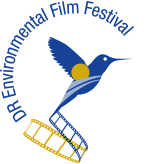
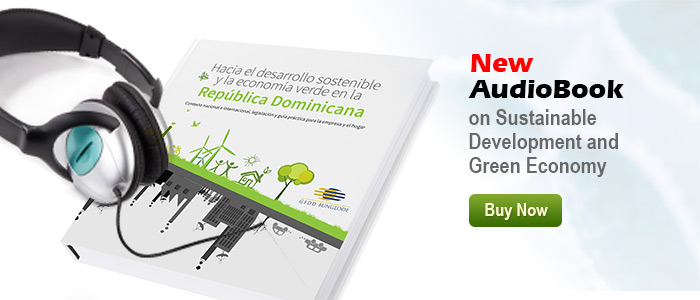
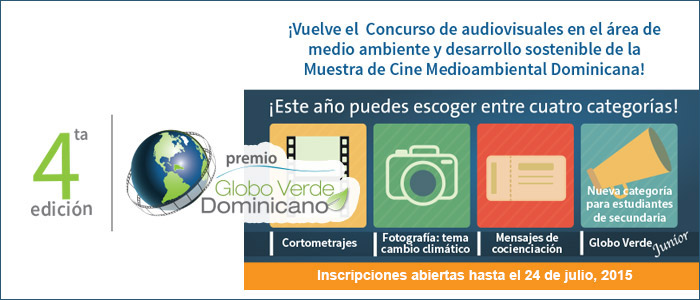

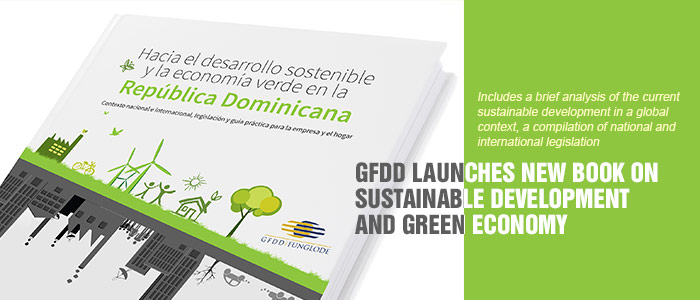
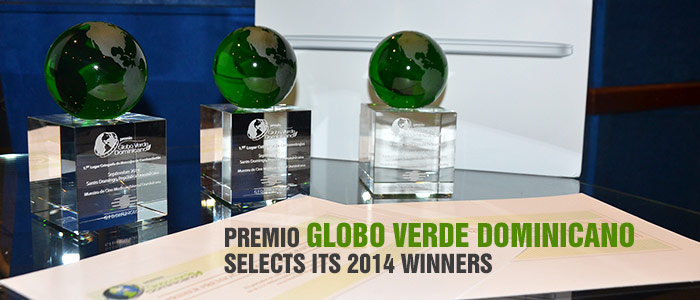
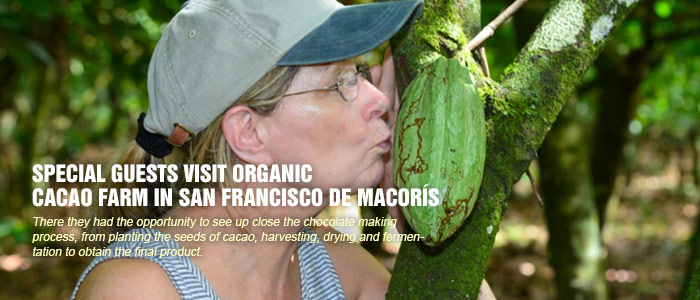
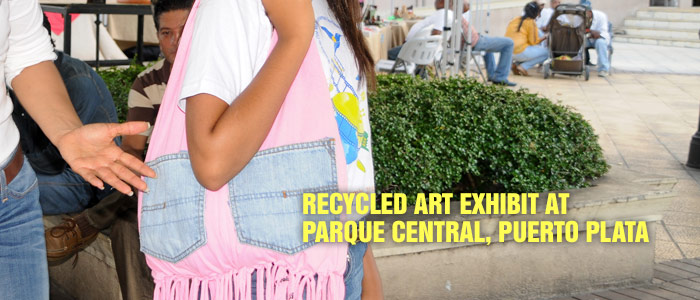
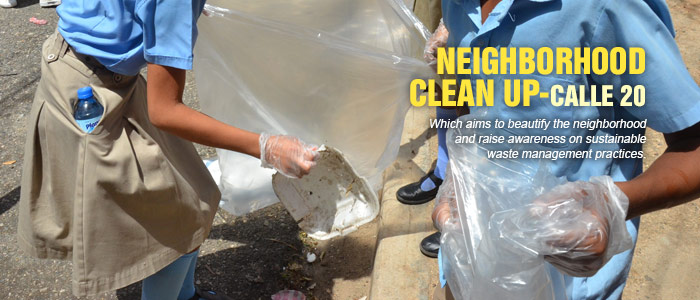
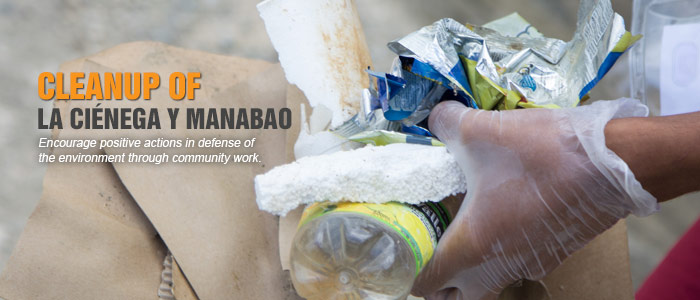
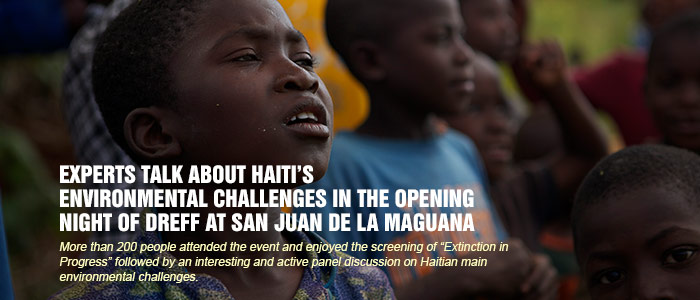
 Prior to the celebration, guests and organizers of the Film Festival enjoyed the official opening of the DREFF, held at thePalacio del Cine de Ágora Mall in Santo Domingo, with the participation of over 20 international personalities of the environment, about 30 national experts, DREFF advisors in the country, and the general public committee. President of GFDD and FUNGLODE, Dr. Leonel Fernández, attended the opening ceremony, as well as Mrs. Natasha Despotovic, GFDD Executive Director, who welcomed everyone.
Prior to the celebration, guests and organizers of the Film Festival enjoyed the official opening of the DREFF, held at thePalacio del Cine de Ágora Mall in Santo Domingo, with the participation of over 20 international personalities of the environment, about 30 national experts, DREFF advisors in the country, and the general public committee. President of GFDD and FUNGLODE, Dr. Leonel Fernández, attended the opening ceremony, as well as Mrs. Natasha Despotovic, GFDD Executive Director, who welcomed everyone. President Leonel Fernández, president of GFDD and FUNGLODE, was present at the ceremony, where Ms. Natasha Despotovic, Executive Director of GFDD, offered the opening remarks after a short video introduction of the Film Festival. Ms. Despotovic acknowledged the presence of special national and international guests including Isabel Turull (General Manager of Palacio del Cine), José Rafael Lantigua, Rafael Suárez, Dominican authorities, public, private and NGO collaborators, and distinct attendees to this edition of DREFF as Richard O’Barry, Stuart Sender, Charlotte Vick, Suzan Beraza, among others.
President Leonel Fernández, president of GFDD and FUNGLODE, was present at the ceremony, where Ms. Natasha Despotovic, Executive Director of GFDD, offered the opening remarks after a short video introduction of the Film Festival. Ms. Despotovic acknowledged the presence of special national and international guests including Isabel Turull (General Manager of Palacio del Cine), José Rafael Lantigua, Rafael Suárez, Dominican authorities, public, private and NGO collaborators, and distinct attendees to this edition of DREFF as Richard O’Barry, Stuart Sender, Charlotte Vick, Suzan Beraza, among others.
 Santo Domingo, Dominican Republic. The Global Foundation for Democracy and Development (GFDD) and its sister organization in the Dominican Republic Fundación Global Democracia y Desarrollo (FUNGLODE), will open the IV edition of the Dominican Republic Environmental Film Festival (
Santo Domingo, Dominican Republic. The Global Foundation for Democracy and Development (GFDD) and its sister organization in the Dominican Republic Fundación Global Democracia y Desarrollo (FUNGLODE), will open the IV edition of the Dominican Republic Environmental Film Festival ( The event took place at the Biblioteca Infantil y Juvenil República Dominicana, where a large group of students also participated in a Q & A with the director of the film.
The event took place at the Biblioteca Infantil y Juvenil República Dominicana, where a large group of students also participated in a Q & A with the director of the film. Children from República de Nicaragua, La Salle and Colegio Amor y Paz schools, as well as other participants of FUNDAZURZA, had the opportunity to enjoy the film that shows in detail how recycling has become an important economic opportunity for Dominicans. Bertha Santana, Coordinator of GFDD program RecreArte, was among the speakers as well as Nicolás Mendoza of FUNDAZURZA, Jorge de los Santos of EcoRed and Yoel Garcia of CEDAF.
Children from República de Nicaragua, La Salle and Colegio Amor y Paz schools, as well as other participants of FUNDAZURZA, had the opportunity to enjoy the film that shows in detail how recycling has become an important economic opportunity for Dominicans. Bertha Santana, Coordinator of GFDD program RecreArte, was among the speakers as well as Nicolás Mendoza of FUNDAZURZA, Jorge de los Santos of EcoRed and Yoel Garcia of CEDAF.
